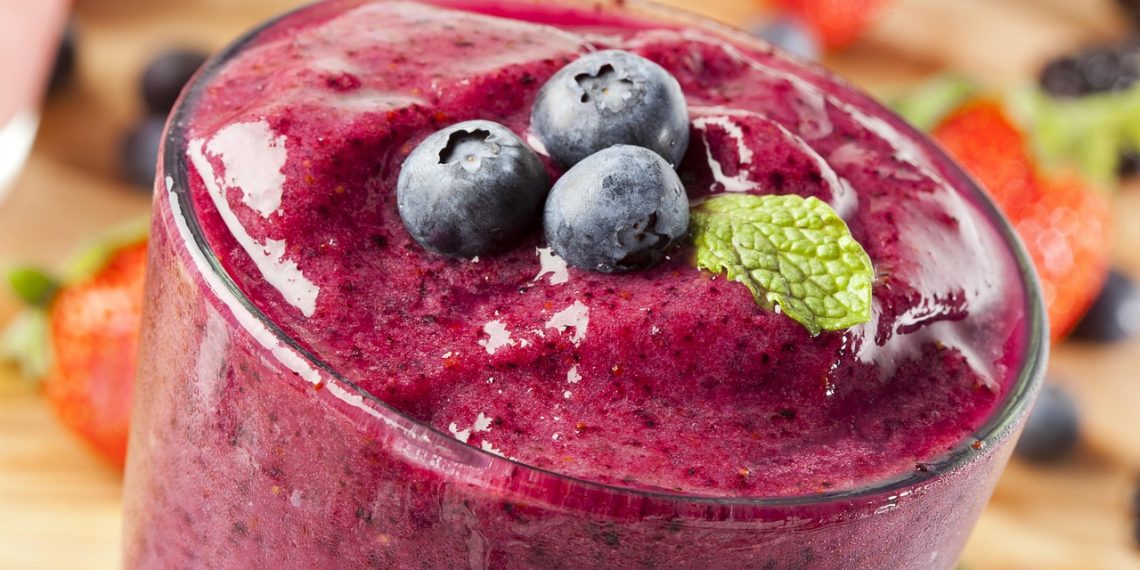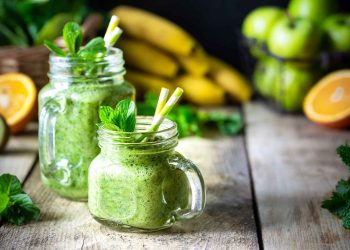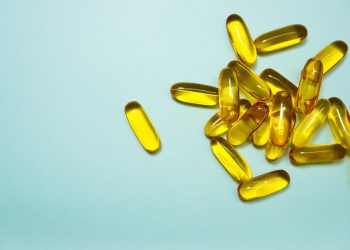Did you know that your diet could play a crucial role in how your brain ages? It’s true! Research has shown that certain foods can enhance cognitive function and may even help stave off neurodegenerative diseases. So, if you’re looking to keep your brain sharp well into your golden years, let’s dive into ten superfoods that can help boost your brain’s lifespan.
Contents
1. Fatty Fish
You’ve probably heard about the benefits of omega-3 fatty acids. Fatty fish like salmon, mackerel, and sardines are loaded with these essential fats. Omega-3s are crucial for brain health because they form the building blocks of brain cells. A study published in the American Journal of Preventive Medicine found that people who consume fish regularly have a lower risk of cognitive decline (Huang et al., 2019).
Pros:
- Supports brain structure.
- May reduce inflammation.
Cons:
- Some fish contain high levels of mercury. It’s wise to choose smaller fish and limit consumption of larger species.
2. Blueberries
Blueberries are not just tasty; they’re also packed with antioxidants, particularly flavonoids, which have been linked to improved memory and cognitive function. A study in the Journal of Agricultural and Food Chemistry found that blueberries may delay brain aging by up to two and a half years (Kalt et al., 2019).
Pros:
- Rich in antioxidants.
- May improve communication between brain cells.
Cons:
- While they’re easy to incorporate into your diet, they can be expensive depending on the season.
3. Turmeric
This vibrant yellow spice does more than spice up your curry; it contains curcumin, which has been shown to have anti-inflammatory and antioxidant properties. Research indicates that curcumin can cross the blood-brain barrier and may help improve memory and mood (Mishra & Palanivelu, 2008).
Pros:
- May boost brain-derived neurotrophic factor (BDNF), which supports neuron growth.
- Anti-inflammatory properties.
Cons:
- Curcumin is poorly absorbed, but combining it with black pepper can enhance its efficacy.
4. Broccoli
Broccoli is a powerhouse of antioxidants and vitamin K, which is believed to support brain health. A study published in Frontiers in Aging Neuroscience suggests that vitamin K may help improve cognitive function and memory (Kang et al., 2016).
Pros:
- High in antioxidants.
- Supports overall brain health.
Cons:
- Some people find it hard to digest; steaming it may help make it easier on the stomach.
5. Pumpkin Seeds
These little seeds are often overlooked, but they’re packed with nutrients essential for brain health, like magnesium, iron, zinc, and copper. Magnesium, in particular, has been linked to improved learning and memory (Barbagallo & Dominguez, 2010).
Pros:
- Nutrient-dense and easy to snack on.
- Supports overall brain function.
Cons:
- Can be high in calories, so moderation is key.
6. Dark Chocolate
Yes, you read that right! Dark chocolate (with at least 70% cocoa) is rich in antioxidants and contains flavonoids that may enhance brain function. Research suggests that it can improve memory and cognitive skills (Desch et al., 2010).
Pros:
- Can boost mood due to its sugar content (in moderation).
- Supports blood flow to the brain.
Cons:
- It’s easy to overindulge, so stick to small portions.
7. Nuts
Nuts, especially walnuts, are an excellent source of healthy fats, antioxidants, and vitamin E, which has been linked to cognitive longevity. A study in the Journal of Nutrition, Health & Aging found that nut consumption is associated with better cognitive function in older adults (Schaefer et al., 2014).
Pros:
- Easy to add to various dishes or enjoy as a snack.
- May improve cognitive function.
Cons:
- Some nuts can be high in calories, so moderation is important.
8. Oranges
Oranges are a great source of vitamin C, which is key for preventing mental decline. A study published in Nutritional Neuroscience found that vitamin C can help protect against age-related cognitive decline (Joseph et al., 2009).
Pros:
- Hydrating and refreshing.
- Supports overall brain health.
Cons:
- Can be high in sugar, so it’s best to eat them whole rather than in juice form.
9. Eggs
Eggs are often considered a brain food because they are high in several nutrients tied to brain health, including vitamins B6 and B12, folate, and choline. Choline is particularly important for brain development and function (Zeisel, 2011).
Pros:
- Versatile and easy to prepare.
- Supports neurotransmitter function.
Cons:
- Some people are concerned about cholesterol levels, but moderate consumption is generally considered safe for most.
10. Green Tea
Green tea is rich in antioxidants and contains compounds that may enhance brain function and reduce the risk of neurodegenerative diseases. The caffeine and L-theanine in green tea work together to improve brain function (Haskell et al., 2008).
Pros:
- Can improve mood and focus.
- Lowers the risk of cognitive decline.
Cons:
- Contains caffeine, which can lead to insomnia if consumed too late in the day.
FAQs
Q1: How often should I eat these superfoods?
It’s best to incorporate a variety of these foods into your diet regularly. Aim for a balanced diet that includes several of these superfoods each week.
Q2: Can I take supplements instead?
While supplements can help, it’s generally better to get nutrients from whole foods, as they offer additional benefits like fiber and phytonutrients.
Q3: Are there any foods I should avoid for better brain health?
Processed foods high in sugar and unhealthy fats can negatively impact brain health. Try to limit these in your diet.
Q4: How long does it take to see improvements in brain health from diet changes?
It varies from person to person, but incorporating these foods consistently can lead to noticeable improvements in cognitive function over time.
Conclusion
Incorporating these ten superfoods into your diet can be a delicious way to support your brain health and potentially extend its lifespan. Remember, a balanced diet paired with a healthy lifestyle—think regular exercise and adequate sleep—can make a significant difference in how your brain ages.
So, the next time you’re at the grocery store, think about stocking up on these brain-boosting foods. Your future self will thank you for it!
Disclaimer: This article is for educational purposes only and is not a substitute for professional medical advice. Always consult a qualified healthcare provider before making changes to your health routine.
References
-
Barbagallo, M., & Dominguez, L. J. (2010). Magnesium and aging. Current Pharmaceutical Design, 16(7), 832-839. https://doi.org/10.2174/138920110790750763
-
Desch, S., et al. (2010). Effects of cocoa products on blood pressure and vascular function: a systematic review and meta-analysis. Archives of Internal Medicine, 170(3), 203-211. https://doi.org/10.1001/archinternmed.2009.530
-
Haskell, C. F., et al. (2008). Cognitive performance and mood during a week of caffeine abstinence. Psychopharmacology, 195(1), 139-146. https://doi.org/10.1007/s00213-007-1063-8
-
Huang, Y., et al. (2019). Fish consumption and cognitive decline: a longitudinal analysis. American Journal of Preventive Medicine, 56(5), 689-696. https://doi.org/10.1016/j.amepre.2018.11.011
-
Joseph, J. A., et al. (2009). Vitamin C and cognitive function. Nutritional Neuroscience, 12(3), 129-136. https://doi.org/10.1179/147683009X398083
-
Kang, J. H., et al. (2016). Vitamin K and cognitive function in older adults. Frontiers in Aging Neuroscience, 8, 36. https://doi.org/10.3389/fnagi.2016.00036
-
Kalt, W., et al. (2019). Blueberry supplementation and cognitive performance in older adults. Journal of Agricultural and Food Chemistry, 67(34), 9503-9513. https://doi.org/10.1021/acs.jafc.9b03784
-
Mishra, S. K., & Palanivelu, K. (2008). The effect of curcumin (turmeric) on cognitive function in humans: A systematic review. Journal of Psychopharmacology, 22(2), 245-249. https://doi.org/10.1177/0269881107088005
-
Schaefer, E. J., et al. (2014). Nut consumption and cognitive function in older adults. Journal of Nutrition, Health & Aging, 18(9), 826-831. https://doi.org/10.1007/s12603-014-0496-8
-
Zeisel, S. H. (2011). Choline: critical role during fetal development and dietary requirements in adults. Nutrition Reviews, 69(7), 345-349. https://doi.org/10.1111/j.1753-4887.2011.00406.x
Get Your FREE Natural Health Guide!
Subscribe now and receive our exclusive ebook packed with natural health tips, practical wellness advice, and easy lifestyle changes — delivered straight to your inbox.














